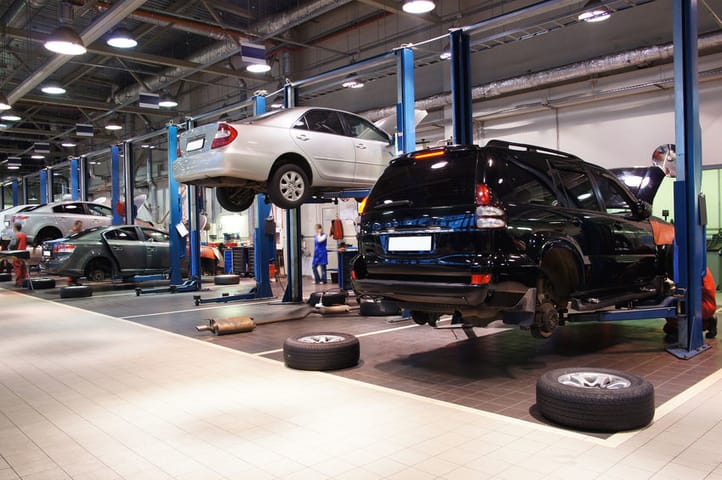All Categories
Featured
Regular engine tune-ups are vital for preserving your lorry's efficiency, improving fuel performance, and extending its life-span. Whether you're an experienced auto proprietor or a novice, recognizing the key aspects of an engine tune-up can aid you maintain your vehicle running smoothly for many years. Below are some crucial pointers to direct you through the procedure.
- Modification the Glow Plugs. Ignition system are tiny however mighty components that play an essential function in stiring up the fuel-air combination in your engine. Gradually, they can use out or come to be fouled, resulting in poor engine performance, lowered gas performance, and hard begins.
During a tune-up, examine your stimulate plugs for wear and replace them as needed. For a lot of automobiles, spark plugs need to be changed every 30,000 to 100,000 miles, depending upon the type and product. Fresh spark plugs guarantee efficient burning and smoother engine procedure.
- Inspect and Replace the Air Filter. The air filter is your engine's first line of protection against dust, debris, and various other impurities. A clogged or dirty air filter can limit air movement, causing your engine to work harder and take in even more gas.
Check your air filter throughout a tune-up and change it if it's dirty or previous its preferred service period. A clean air filter boosts engine effectiveness and enhances gas economy.
- Inspect the Fuel System. Gradually, your gas system can accumulate dirt and carbon down payments, reducing engine performance and gas effectiveness. Cleansing the gas injectors and fuel lines during a tune-up aids keep correct gas shipment and burning.
You can make use of a fuel system cleaner or have a professional mechanic execute an extra complete cleansing. This step is specifically valuable for older automobiles or autos regularly driven in stop-and-go web traffic.
- Check the Belts and Hoses. Belts and tubes are important for different engine features, such as running the alternator, water pump, and cooling. Throughout a tune-up, look for splits, fraying, or indications of wear on these elements.
Replace any kind of damaged belts and hoses to stop potential break downs. A busted belt or dripping tube can lead to engine getting too hot or loss of power, so dealing with these issues without delay is important.
- Change the Engine Oil and Oil Filter. Engine oil is crucial for lubricating moving components, decreasing friction, and managing engine temperature. In time, oil comes to be polluted and sheds its effectiveness.
As component of a tune-up, change the engine oil and oil filter. Utilize the sort of oil advised by your automobile's maker and stay with the suggested adjustment periods. Clean oil keeps your engine running smoothly and stops premature wear.
- Examine the Battery and Charging System. A healthy and balanced battery is essential for starting your vehicle and powering its electric systems. During a tune-up, check the battery's voltage and check the terminals for deterioration. Tidy the terminals if required and make sure a secure connection.
In addition, test the generator and billing system to guarantee your battery remains billed during procedure. If your battery is weak or old, think about replacing it to avoid unexpected malfunctions.
- Flush and Refill the Coolant. The air conditioning system regulates your engine's temperature level, preventing it from overheating. Old or infected coolant can lose its effectiveness, bring about possible engine damages.
Throughout a tune-up, flush the old coolant and change it with a fresh blend. Check the radiator, thermostat, and hoses for leakages or damages. Maintaining the air conditioning system in great condition guarantees your engine runs at the appropriate temperature level.

- Address Warning Lights and Unusual Signs And Symptoms. Modern cars are geared up with diagnostic systems that inform you to potential concerns through control panel warning lights. If your check engine light or any various other cautioning indications get on, resolve them during your tune-up.
In addition, focus on unusual signs and symptoms such as weird sounds, rough idling, or reduced fuel effectiveness. An expert mechanic can identify and settle these problems during the tune-up process.
- Do Not Forget the Exhaust System. Your automobile's exhaust system gets rid of unsafe gases from the engine and ensures appropriate emissions. Check the exhaust system for leaks, rust, or damages during a tune-up. A damaged exhaust system can influence engine performance and bring about environmental and safety issues.
- Use High-Quality Parts and Fluids. When changing parts or completing liquids during a tune-up, constantly go with top quality items that satisfy your vehicle's specifications. Using subpar components or inaccurate liquids can negatively impact your engine's performance and longevity.
Conclusion: Routine Tune-Ups Are Key to Engine Health. Taking the time to tune up your engine guarantees it operates efficiently, saves fuel, and reduces the threat of failures. Whether you do these jobs yourself or count on a trusted auto mechanic, routine tune-ups are a financial investment in your car's dependability and durability. Follow these suggestions, and you'll take pleasure in a smoother, more dependable adventure for several years to come.
Latest Posts
Transform Your Home with Long Lasting Hardwood Flooring from Carpet Interiors Floor & Home
Simplify Your Lease Return at Ron Marhofer Hyundai
The Advantage of NAPA AutoCare? Montclare Auto Repair Delivers the Best Service
More
Latest Posts
Transform Your Home with Long Lasting Hardwood Flooring from Carpet Interiors Floor & Home
Simplify Your Lease Return at Ron Marhofer Hyundai
The Advantage of NAPA AutoCare? Montclare Auto Repair Delivers the Best Service
